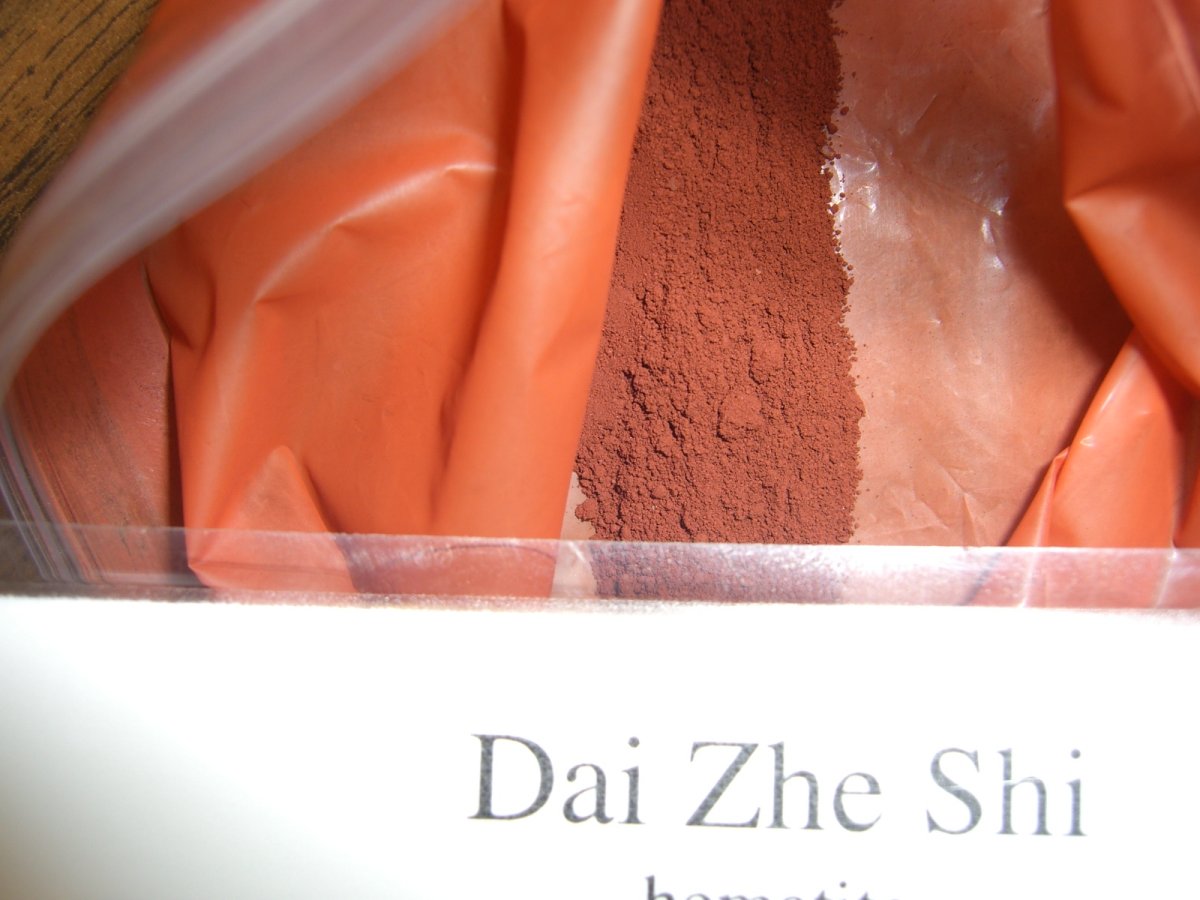Dai Zhe Shi

  | Dai Zhe Shi in TCM:Explore the properties of Dai Zhe Shi according to Chinese
Nutrition and Traditional Chinese Medicine (TCM):
Factoids:
English Name: Hematite
Pharmacuetical Name: Haematitum
Properties: bitter, cold
Temperature: cold
Channels: HT, LV
Flavors: bitter
Special Properties:
circulates qi, circulates blood, clears heat, stops bleeding
Alternate Forms:
- Sheng: use to calm, anchor yang, redirect rebellious qi
- Cui: use to cool blood and stop bleeding (Cui: is a tempering process
of preparing by frying, dipping in vinegar, then pulverizing)
Actions / Indications:
- Calms LV; Anchors floating Yang; Clears LV Fire (headache,
tinnitus, dizziness, vertigo, manic-depressive disorder, seizures)
- Strongly redirects rebellious qi downward (rebellious
qi in LU or ST: belching, vomiting, hiccups;
acute or chronic wheezing)
- Cools blood; stops bleeding (vomiting blood, nosebleeds,
uterine bleeding, or blood in stool due to hot blood; can be used in
combination for bleeding due to deficient cold)
Special Notes:
- Stimulates smooth muscle of the intestines to increase peristalsis
- Compare Dai Zhe Shi, which is bitter and cold, to Chi
Shi Zhi which is warm and used mainly for lower jiao bleeding.
- Dai Zhe Shi is often paired with Xuan
Fu Hua to treat rebellious qi.
Contraindications:
- (cc: pregnancy caution)
- (cc: cautioned against long term use: contains minute levels or arsenic
salts, which can accumulate into toxic levels)
Disclaimer: In accordance with our terms of service, by using this web site you agree that none of the information found on this web site constitutes medical advice. You should always consult your doctor before trying any particular food or herbal remedy to treat disease.
Folk remedies presented on this site are designed to address specifc TCM diagnoses, and are not one-size-fits-all. If you would like to learn more about Traditional Chinese Medicine (TCM) and how it relates to Chinese Nutrition, you can book in a free call with a licensed professional. There is no obligation to purchase.
[CLICK HERE for your free INITIAL CONSULTATION] |

